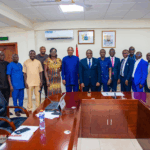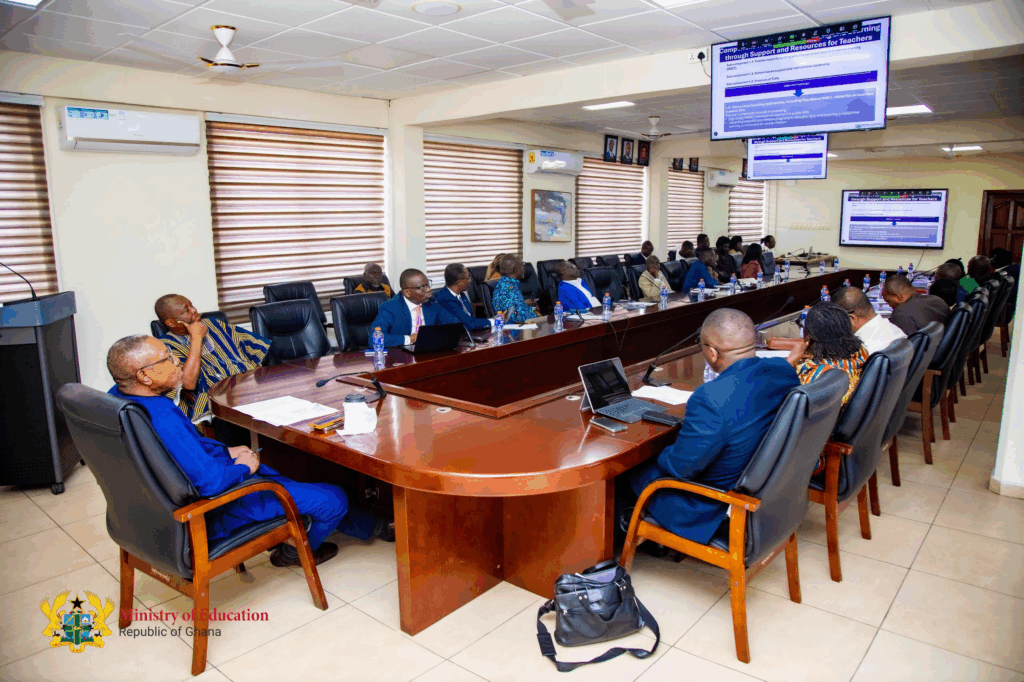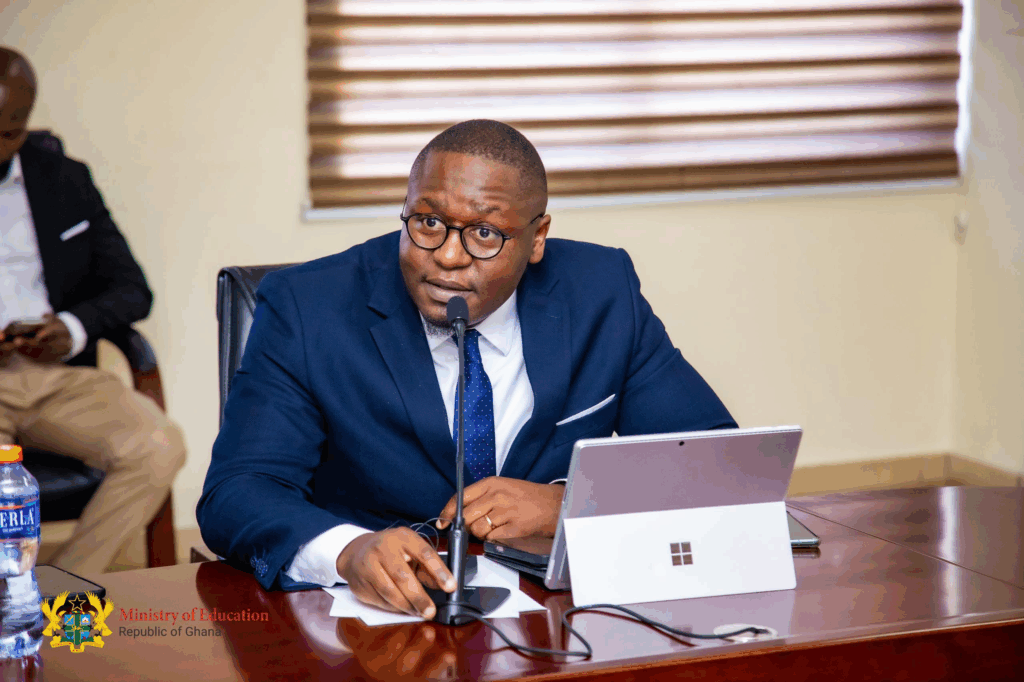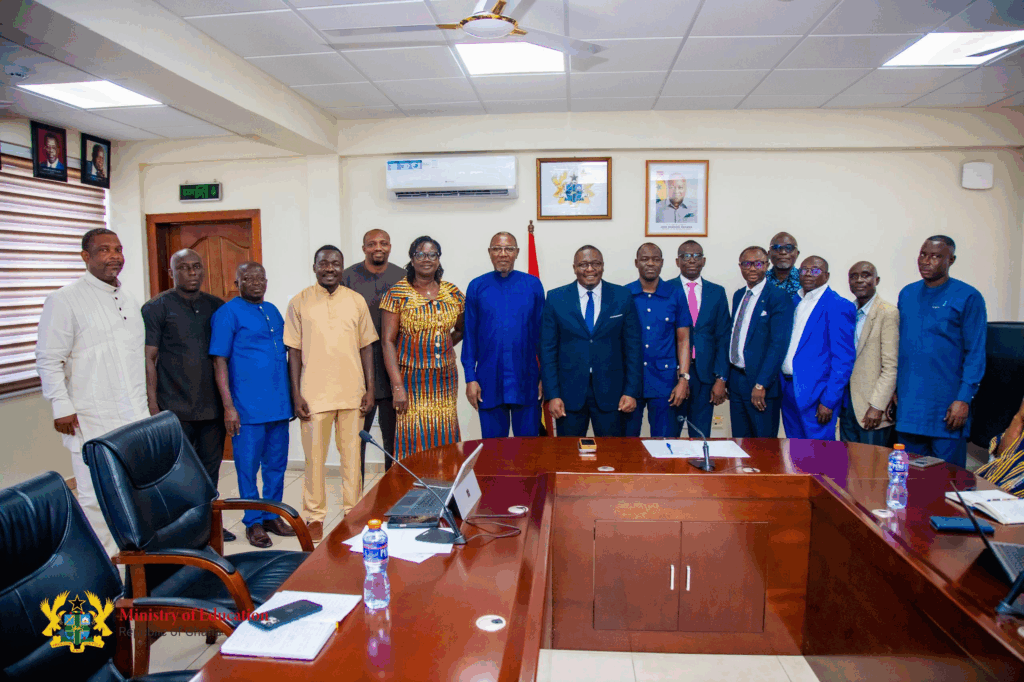
The Ministry of Education has directed the Ghana Accountability for Learning Outcomes Project Additional Funding Two (GALOP AF2) Oversight Committee to reaffirm its collective commitment to ensuring quality learning opportunities for every child in Ghana.
Haruna Iddrisu, the Minister of Education, acknowledged the ongoing support provided by the System Change Architecture for Learning Excellence (SCALE), the Global Partnership for Education (GPE) and the World Bank for the Ghana Accountability for Learning Outcomes Project (GALOP) initiative.
During the first committee meeting at the Ministry of Education, Dr. Clement Apaak, the Deputy Minister of Education, spoke on behalf of Mahama Iddrisu, stating that “our effectiveness will be measured by the clarity of our direction, the quality of our oversight and the responsiveness of our system to on-the-ground realities.

Together, let us show that when oversight is rigorous and collaboration is genuine. transformative learning outcomes are not just possible, they are inevitable.”
GALOP AF2
The GALOP AF2 will focus on four areas: enhancing teaching with resources for teachers, improving school management and resourcing, strengthening learning accountability systems, and providing technical assistance, institutional support, monitoring and research.
The World Bank, serving as GALOP’s grant agent, will use a results-based financing approach to disburse funds to the Ministry of Education, which will allocate these funds according to predefined performance-based conditions.
Dr. Apaak informed the committee members that the group was formed to develop an overall strategy and provide high-level oversight of the GALOP AF2 project, ensuring activities are implemented effectively and remain aligned with the ministry’s education sector priorities.
He stated that the purpose of GALOP is to enhance the quality of education and learning outcomes in basic education schools, emphasising equity, accountability, and system strengthening.

According to Dr. Apaak, this is being pursued through interventions designed to address factors contributing to low learning outcomes, particularly in underserved and low-performing basic schools.
According to the Deputy Minister, GALOP aims to enhance literacy and numeracy proficiency in the early grades by implementing structured pedagogy, ensuring curriculum alignment, and utilising assessment tools such as the National Standardised Test.
He stated that GALOP aims to offer ongoing professional development for teachers, including in-service training, coaching, and digital learning resources to improve teaching and student engagement.
Support would be prioritised for the 10,000 lowest-performing basic schools, many in disadvantaged rural areas.
Dr. Apaak emphasised the importance of providing inclusive education that meets the needs of vulnerable learners, including girls, children with disabilities, and individuals from marginalised communities.
He further stated that the primary goal of GALOP is to allocate resources – such as school grants, educational materials, and digital tools – in a manner that is both targeted and equitable.

Funding partners
Dr Apaak thanked the funding partners for their ongoing support of GALOP, noting that GALOP AF2 contributed an extra US$117.1 million to expand interventions in basic schools.
He expressed sincere appreciation to the SCALE Funders, GPE, the World Bank, and all partners for their continued commitment.
Dr. Apaak emphasised the necessity of deploying and monitoring all the interventions, including teacher training, school grants, and performance-based incentives, with maximum efficiency.
Dr. Samuel Kembou, representing the philanthropic partners of the SCALE Consortium and the Global Lead for Learning and Evidence with the Jacobs Foundation, stated, “It is an honour to participate in this collaborative effort aimed at improving educational outcomes for children in Ghana.”

